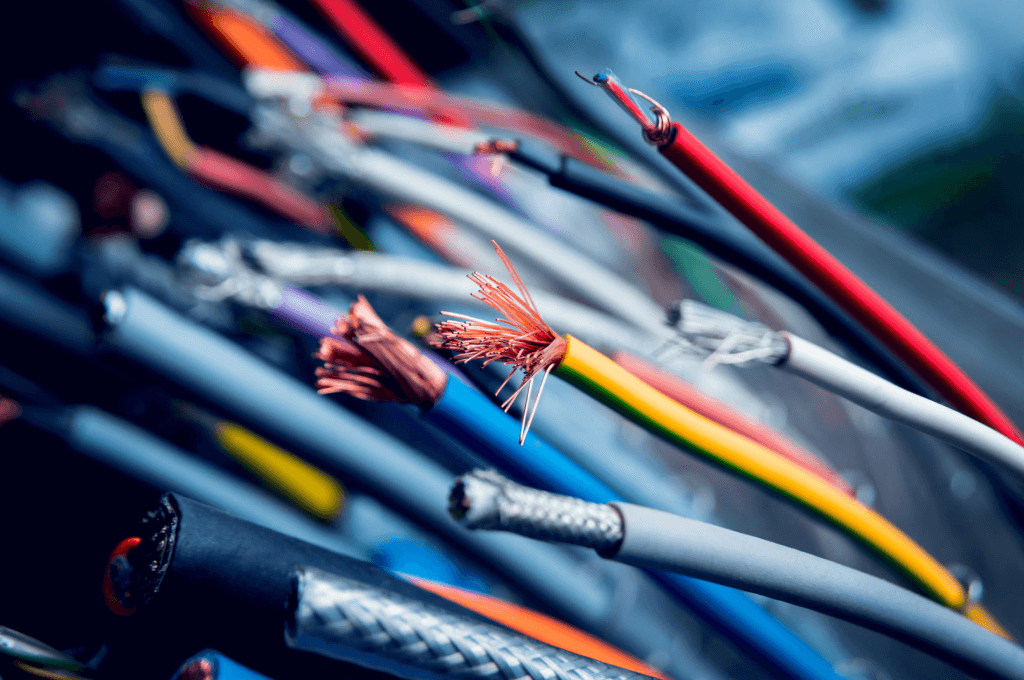
CABLES / WIRES
Brands
- POLYCAB
- HAVELLS
- FINOLEX
- RR KABEL
- KEI
- BONTON CABLES
- FINOLEX
- & Many More
Cables and wires are indispensable components of electrical systems, serving as the arteries that carry electrical power and signals to various devices and appliances. They come in diverse types and sizes, each designed for specific applications to ensure efficient and reliable transmission of electricity and data. Let’s explore the different types of cables and wires and their roles in electrical installations.
Power Cables: Power cables are heavy-duty cables designed to transmit high-voltage electrical power from power generation stations to substations and distribution networks. These cables are crucial for delivering electricity over long distances with minimal losses. Power cables are typically insulated and armored to provide protection against mechanical damage and environmental factors.
Control Cables: Control cables are used for transmitting low-voltage signals for controlling electrical equipment and machinery. They are commonly employed in industrial automation, process control systems, and instrumentation applications. Control cables are available in various configurations, such as twisted pairs or shielded cables, to minimize signal interference and ensure accurate data transmission.
Communication Cables: Communication cables are designed to carry data and information between devices, computers, and communication systems. Types of communication cables include coaxial cables, twisted pair cables (such as Ethernet cables), and fiber optic cables. Coaxial cables are used for cable television and high-frequency signal transmission, while twisted pair and fiber optic cables are widely used in computer networks and telecommunications.
Building Wires: Building wires, also known as electrical wires, are used for internal electrical wiring in residential, commercial, and industrial buildings. These wires connect electrical outlets, switches, lighting fixtures, and appliances to the main power supply. Building wires are available in different conductor sizes and insulation materials to meet the specific power requirements of various electrical loads.
Flexible Cables: Flexible cables are engineered to withstand frequent bending and twisting without compromising their electrical performance. They are commonly used in applications where mobility is required, such as extension cords, power tools, and robotics. Flexible cables are designed with stranded conductors to enhance flexibility and durability.
Armored Cables: Armored cables feature an additional protective layer of steel or aluminum, providing mechanical protection against impact and external hazards. These cables are suitable for outdoor and underground installations, as well as in industrial settings where there is a risk of damage to the cables.
Fire Resistant Cables: Fire resistant cables are designed to maintain circuit integrity even in the presence of fire. They are crucial for critical applications where continuous power supply is necessary for safety and emergency systems, such as fire alarms, emergency lighting, and evacuation systems.


